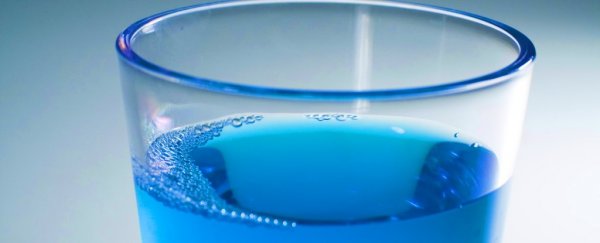A range of common household items – including mouthwash, nasal rinses, and even diluted baby shampoo – have been found to inactivate a form of human coronavirus in new research, highlighting another potential avenue to reduce transmission rates amid the ongoing COVID–19 pandemic.
Before we go any further, it's worth pointing out that nobody is suggesting mouthwash is some kind of silver bullet that can protect you from a virus that has killed over 1 million people so far, as that's not what this research is demonstrating, nor recommending.
For starters, nobody gargled oral rinses as part of these new experiments, which were performed in the lab using cultured human cells in solutions. In other words, we haven't yet tested in people the effects of using products like mouthwash on coronaviruses.
Also, it's worth noting the scientists in this study used a form of coronavirus called HCoV‐229e – not SARS-CoV–2, which is the specific coronavirus behind the disease COVID–19.
As both the viruses are genetically similar, the experiment's results are expected to broadly be the same, but it's another reason not to think that mouthwash use in real life confers any protective benefits, as that hasn't actually been shown.
Nonetheless, while health authorities strive to debunk popular misconceptions about supposed coronavirus defences in the background, scientists have been calling for more research investigating how products like mouthwash might interact with and inactivate SARS-CoV-2, due to the presence of chemicals known to disrupt viral membranes.
To examine this, a team from Penn State University exposed human liver cells in culture with mixed solutions containing HCoV‐229e and either mouthwash, a nasal rinse product, or baby shampoo diluted to 1 percent.
Tests revealed that all of the products were effective at inactivating the virus, although the extent of the effects varied between products, and depended on how long the products were in contact with the virus.
"With contact times of 1 and 2 minutes, the 1 percent baby shampoo solution was able to inactivate more than 99 percent and more than 99.9 percent or more of the virus, respectively," the researchers write in their paper.
Among the oral rinses, many of the products tested inactivated 99.99 percent of the virus after 30 seconds, and when incubation times grew longer than that (1 and 2 minutes), the researchers couldn't detect any remaining infectious virus in the cells.
The findings support earlier research from Germany published in July, which also suggested exposure to mouthwash could significantly reduce the viral load of coronavirus. It's worth pointing out, too, that the German study used SARS-CoV-2 in the experiments, which were otherwise similar to the Penn State study.
Nonetheless, neither of these studies can guarantee we'd see the same outcomes in tests with human participants, and there's a lot we don't know about how products like mouthwash and oral rinses might function in real-world scenarios.
Still, given the kind of positive results we're seeing in experiments like this – and given how few defences we currently have against coronavirus, beyond common staples such as physical distancing, hand-washing, and wearing masks – the researchers say we should be looking at clinical trials to evaluate whether products like mouthwash can actually reduce viral load in COVID-19-positive patients, too.
"Clinical trials are needed to determine if these products can reduce the amount of virus COVID-positive patients or those with high-risk occupations may spread while talking, coughing, or sneezing," says microbiologist Craig Meyers, the first author of the study.
"Even if the use of these solutions could reduce transmission by 50 percent, it would have a major impact."
The findings are reported in Journal of Medical Virology.
